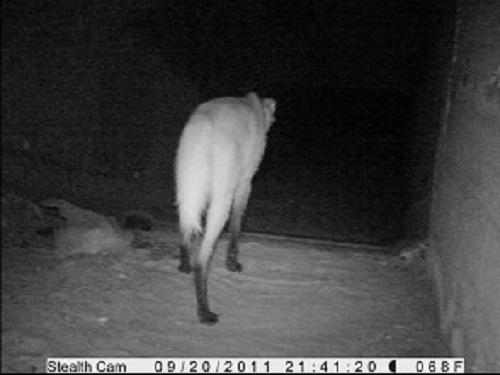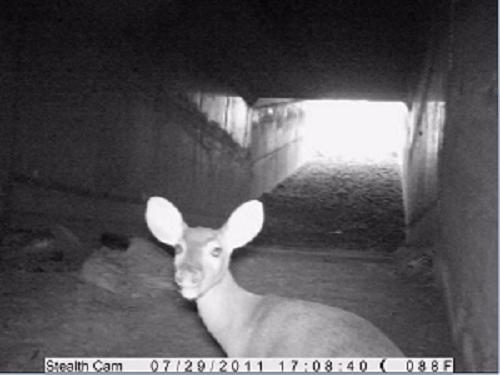Fernanda Delborgo Abra
The aim of the project is to monitor, to evaluate, and to test the efficiency of different types of underpasses to medium and large size mammals and finally choose the best type of underpasses to be implanted in highways located in Cerrado and Atlantic Forest biomes.

Chrysocyon brachyurus.
Brazil adopts the road system as main transportation to connect cities and spread goods. Serious environmental problems are linked with roads, main natural systems and road killings of wild animals. The Road Ecology theme is new in Brazil and in Latin America in general. Few studies and publications were made in this area with specific and replicable methodology.

Mazama gouazoubira.
It’s necessary and urgent to recommend to the license organizations connected to the Environment Ministry and Transportation Ministry concerning the necessity to mitigate the impacts that the implantation or duplication of roads and highways can cause. My research concerns to monitoring and evaluate underpasses located on the SP-225 highway in the city of Brotas, São Paulo State, Brazil. The city of Brotas is considered a strategic area to make scientific studies and is an essential area to the development of methods to promote biological conservation. There is only a 2% of Cerrado conservated area remaining on the Sao Paulo State, and a big patch of Cerrado in Itirapina Ecological Station, a neighbour city to Brotas, also located on SP-225.
Monitoring the underpasses in Brotas will allow to verify if they are being efficient in avoid and/or diminish the road killings and, in this direction, to evaluate which is the best underpass model to use for medium and large mammals.
One of the most expected results of this project is to make recommendations concerning the more efficient underpass, to medium and large mammal use, to the highway and road licensed organizations like IBAMA (Environmental Brazilian Institute) CBRN(Biodiversity and Natural Resources Coordinator Organization) and DNIT (Infrastructure and Transport National Department) which do not present official norms and standards to implantation of underpasses in Cerrado and Atlantic Forest biomes.
In other words, this project associated with road ecology presents an evolution about biological conservation in Cerrado areas, mainly in the Sao Paulo state. I hope to contribute to the increase of knowledge associated with road ecology on state and national levels. This project foresees a great applicability and simple methodology. Nowadays, projects associated with conservation should be linked to public policies, therefore the necessity to involve public organizations and make them know about the obtained results of the studies and researches made.